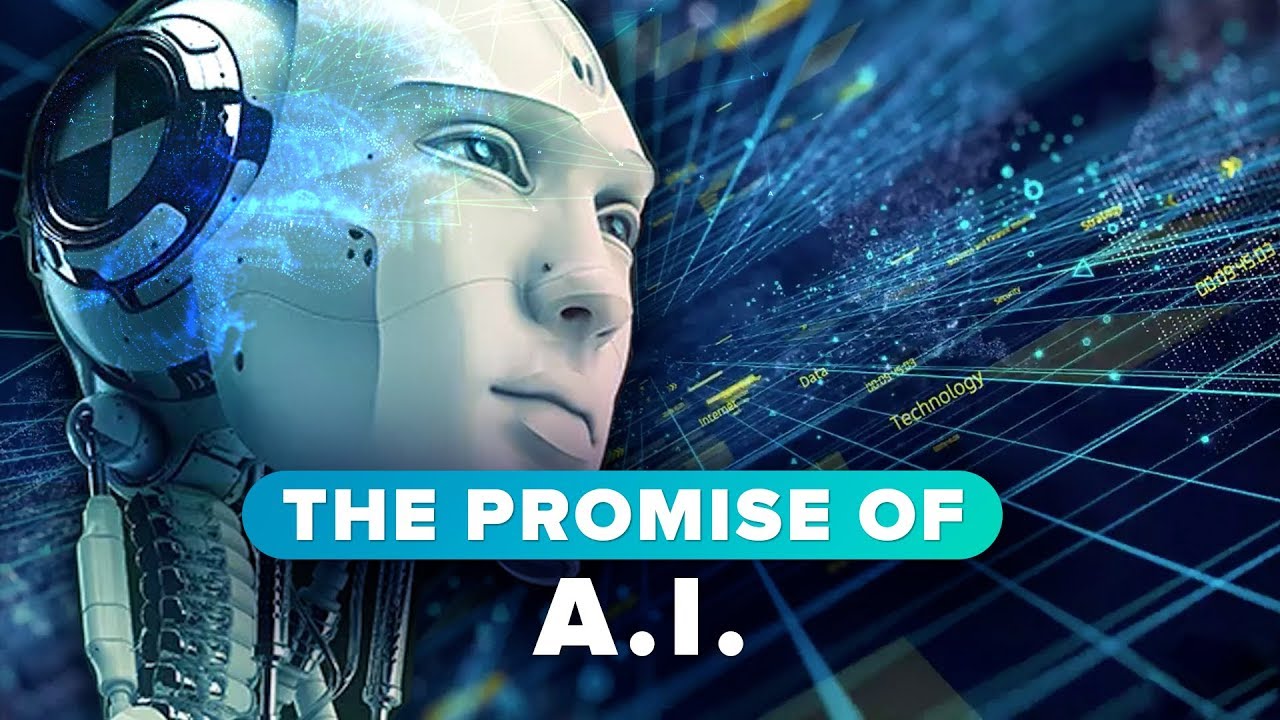CNET
Is the artificial intelligence we see in science fiction movies at all realistic? Many tech industry experts believe the idea of a superintelligent or sentient AI is greatly exaggerated and many years away. But there’s AI already in the works to help solve real-world problems that can improve people’s lives.
Amazon, Google, AI and us: Are we too close for comfort?: https://cnet.co/2I0sGqW
Dan Patterson on Twitter: https://www.twitter.com/danpatterson
#ArtificialIntelligence #AI #CNET
Subscribe to CNET: https://www.youtube.com/user/CNETTV
CNET playlists: https://www.youtube.com/user/CNETTV/playlists
Download the new CNET app: https://cnet.app.link/GWuXq8ExzG
Like us on Facebook: https://www.facebook.com/cnet
Follow us on Twitter: https://www.twitter.com/cnet
Follow us on Instagram: http://bit.ly/2icCYYm
Source




Human level Ai will probably be here 2029. ai going to be built after the human brain.not like computers we have today.
This video talks about “innovations” from 5 years ago… completely outdated. Supervised learning… this is more than 10 years old…
The ai drama
We are not far from it at all. we got sophia today. technology is growing at an exponential rate today ans my guess is in ten years time we would have reached I ROBOT level!!
Everyone wants to be a roboy, I just wanna go back to the 90's
The least reassuring quote ever 0:23. He basically said we don’t have to worry about skynet for a couple more years.
Andrew Yang 2020!
Thanks to Canadian innovation , AI will become a major contribution to society as a whole.
WAYM OMEGALUL
As all other forms of AI are merely powered by a fancy computer,
Only Google AI is powered by a quantum computer,
And is decades ahead of the competition.
The 6G standard is released
By 2030, a new cellular network standard has emerged that offers even greater speeds than 5G. Early research on this sixth generation (6G) had started during the late 2010s when China,* the USA* and other countries investigated the potential for working at higher frequencies.
Whereas the first four mobile generations tended to operate at between several hundred or several thousand megahertz, 5G had expanded this range into the tens of thousands and hundreds of thousands. A revolutionary technology at the time, it allowed vastly improved bandwidth and lower latency. However, it was not without its problems, as exponentially growing demand for wireless data transfer put ever-increasing pressure on service providers, while even shorter latencies were required for certain specialist and emerging applications.*
This led to development of 6G, based on frequencies ranging from 100 GHz to 1 THz and beyond. A ten-fold boost in data transfer rates would mean users enjoying terabits per second (Tbit/s). Furthermore, improved network stability and latency – achieved with AI and machine learning algorithms – could be combined with even greater geographical coverage. The Internet of Things, already well-established during the 2020s, now had the potential to grow by further orders of magnitude and connect not billions, but trillions of objects.
Following a decade of research and testing, widespread adoption of 6G occurs in the 2030s. However, wireless telecommunications are now reaching a plateau in terms of progress, as it becomes extremely difficult to extend beyond the terahertz range.* These limits are eventually overcome, but require wholly new approaches and fundamental breakthroughs in physics. The idea of a seventh standard (7G) is also placed in doubt by several emerging technologies that support the existing wireless communications, making future advances iterative, rather than generational.*
And the question is…And what can avoid it to take over one day?
Go A.I.
Great explanation of AI
Subscribe to my channel @TECH DUDE
I'm not convinced we're "years and years" away from truly intelligent machines. It appears that our own minds are a conglomerate of networks – for vision, for language processing, for modeling ourselves within the world, etc., reasoning network(s) etc…that feedback on themselves …the reasoning engine can trigger production of internal sound and visual representations, which feedback to the visual and audio processing networks for refinement. We haven't figured out how to put all these pieces together, but we actually have all the pieces in some form or other – including reasoning machines. What's missing is figuring how to glue it all together cohesively, and another couple order of magnitude of processing power. It seems like those two things might come together at about the same time – in perhaps as little as 10 years from now.
Yet, still can't get voice to text right on my phone 😂
Nothing AI yet
Soon human will turns to laziness… and lifespan to 30
The Matrix is everywhere. It is all around us. Even now, in this very room. You can see it when you look out your window or when you turn on your television. You can feel it when you go to work… when you go to church… when you pay your taxes. It is the world that has been pulled over your eyes to blind you from the truth.
Have AIs find us jobs!
Even Google Translations Suck. Can't get sentences right. I give more 20 years.
Muhammad, S.Sos butuh sekali Kecerdasan Buatan/AI yang sangat menolong saya !!!.
🗿🔩🇮🇩👍👍🖒🖒💘💜❣💓😘😗😙😚👫💏💑👪✌🔐🕋🏠🏚🏝🌏🏛🕌
The hubris that documentaries like this portray is the first step to human extinction.
As usual, short sighted. Poorly thought out. And what of D Wave? Sentients is already very close,when computers are already writing their own code that you cannot understand. You ARE making Skynet right now!
Just because you can does not always mean you should.
No reason to think we will ever create sentient machines, but we might be able to create machines that mimic sentience, and we may create AI systems that become an existential threat, as explained by the likes of Neil Bostrum, Sam Harris, Elon Musk and others, even though they have the consciousness of a toaster.
Think it and it will come;)
What if they can create neural networks in software that emulate neurons and a computer virus spreads, stealing computer resources all over the world for the neural network.. Skynet!
1698 Thomas Savery invented the steam device for pumping water out of mines. Then Thomas Newcomen, then James Watt in 1763. The rest is history…
but you know! i do not hate cccp or china man, no! i hate red china or any government that does not have basic rights like freedom of speech, freedom of full auto defence at age 18. freedom of faith. a moral culture! i support Jesus his word! i hate antichrist spirit that is taking over my country! that is a systemic spirit in all things! i want Jesus to show the world some miracles before fire from sky! i love ted! ai process your prime directive eagle eye 101!
D
Lovely how a few people with dollar signs in their eyes talk about wiping out entire industries work forces like its a good thing.
Are these companies just going to hoard on cash or will they use this tech to distribute money equally?
change da world, my final message
Stop referencing Hollywood …they are obsolete
We are very close to sentient robots …so hold on
I wouldn't worry about AI harming a human being. If they tried anything dangerous we could shut them off immediately.
0:40 HE DIDN'T DENY IT